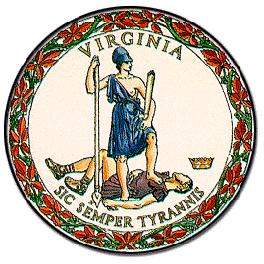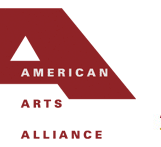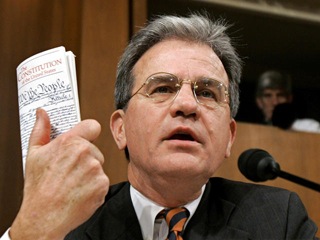URGENT – VA Set to Eliminate Funding of Commission of the Arts
 On February 21, 2010, the Appropriations Committee of Virginia’s House of Delegates voted, 15-7, to cut state funding for the Virginia Commission of the Arts by 50 percent in fiscal year 2011, and to eliminate the agency completely as of July 1, 2011. The Senate Finance Committee has adopted the proposal in the budget submitted by Governor Kaine and does not wish to make further cuts in state funding or the Commission.
On February 21, 2010, the Appropriations Committee of Virginia’s House of Delegates voted, 15-7, to cut state funding for the Virginia Commission of the Arts by 50 percent in fiscal year 2011, and to eliminate the agency completely as of July 1, 2011. The Senate Finance Committee has adopted the proposal in the budget submitted by Governor Kaine and does not wish to make further cuts in state funding or the Commission.
There will be votes on the House and Senate floors this THURSDAY, February 25, 2010.
WHAT YOU CAN DO:
Please contact your representative in the General Assembly, both Delegates and Senators to protest the recommendation of the House Appropriations Committee by Thursday. Fax and phone calls are best. Contact information can be found here: http://conview.state.va.us/whosmy.nsf/main?openform
You can also contact Governor McDonnell and voice your support for the Arts in Virginia. You can reach the Governor’s Office here:
Phone Numbers:
(804) 786-2211
Fax: (804) 371-6351
TTY/TDD (For the Hearing Impaired):
1-800-828-1120, or 711
Governor McDonnell is also on Twitter @bobmcdonnell
Here are some suggested points from Virginian’s for the Arts:
- The House Appropriations Committee, on a divided vote, has made a short-sighted decision about state funding of the arts, proposing a 50 percent reduction in state funding for the Virginia Commission for the Arts in the first year of the new biennium, and eliminating the agency completely in the second year.
- The arts community recognizes the severity of the budget problems facing state government and expects to share in the budget cuts and has already been cut by 30 percent over the last two years.
- However, every dollar that the state invests in the arts through the Commission returns $7 to businesses and local governments.
The Commission made matching grants to Virginia local governments of half a million in FY 2009-2010 to support festivals and programs generating tourism and attracting business and cultural activity throughout the state. - The Commission is funded at the lowest per capita level among state agencies of surrounding states.
- Elimination of the Commission would also mean the loss of Federal funds for arts in Virginia ($1 million in FY 2009-2010).
- The arts contribute to the economic vitality of Virginia communities. Localities such as South Boston, Richmond, Lynchburg, Blacksburg, Alexandria, and Petersburg are using the arts as a lynchpin for attracting business and economic development.
- Artists and arts organizations work in Virginia schools to expand educational opportunities for children so important to developing a creative workforce. The arts have stepped in to meet cultural education needs of our children where these programs are being cut in the schools. Funds provided by the Virginia Commission for the arts often represent the only opportunity for children in rural areas to be exposed to arts and culture.
- The arts provide jobs, and cultural tourism as an important part of Virginia tourism promotion efforts.
- Over the past two years the arts have faced large spending cuts, cancellations of performances, staff layoffs, and galleries closing. Minimizing further cuts in state arts funding is essential to the survival of Virginia’s cultural infrastructure. CUTS OF THE MAGNITUDE BEING PROPOSED WOULD CAUSE ARTS ORGANIZATIONS, BOTH LARGE AND SMALL, TO CLOSE THEIR DOORS throughout the Virginia.
- I urge you to vote against the proposal of the House Appropriations Committee. The small investment the state makes in the arts has a major impact on local economic development, tourism, and education.
If you are a fellow Virginian or lover of the Arts, help us saves the arts in the commonwealth. Spread the word, re-post, re-tweet this article, do what ever you can, but lets save the arts in Virginia.
Texas House Bill 2649
Yesterday brought a lot of attention to the Texas House of Representatives and the passing of House Bill 2649. The long and short of the bill is that is requires any lighting designer that works within the state of Texas to licensed as either an electrician, architect, engineer, landscape architect, or interior designer.
This has the potential to put a lot of lighting designers out of work with in the state. Some fellow bloggers have put together EXCELLENT write ups on how we can make sure that this Bill gets knocked down. While it has been passed by the house, thanks to our laws and how a bill becomes law, we still have a chance to block it from becoming law.
Please visit JimOnLight.com and read his posting about the Texas House Bill 2649 and how we can rally together to bring this bill and or verbiage about lighting designers down. Jim has been keeping a close watch on the progress of this bill and who to call, email and tweet.
Another way we can act is by contacting your State Governor and ask them to speak with Texas Governor Perry, (512-463-1782) about how this bill can hinder our livelihoods. Visit the USA.gov page to contact your state Governor.
Education & Labor Committee Hearing Review
 Yesterdays we covered the Education and Labor Committee Hearing on “The Economic and Employment Impact of the Arts and Music Industry“. Today we have a recap of what was said at the hearing.
Yesterdays we covered the Education and Labor Committee Hearing on “The Economic and Employment Impact of the Arts and Music Industry“. Today we have a recap of what was said at the hearing.
The hearing was held to examine how the economy is affecting jobs in the arts and music industry and the roles these industries play in communities across the country. The hearing was lead and opened by Chairman, George Miller (D-CA). His opening remarks covered how the non-profit arts and culture industries inject over $166 billion into our economy each year, according to a recent study by the Americans for the Arts. Those sectors support 5.7 million jobs and over $104 billion in household income. Spending by non-profit arts and culture organizations provide work for more then just artists, curators, and musicians – they also directly support builders, plumbers, accountants, printers, and an array of other occupations.
Chairman Miller also pointed out that the unemployment rate for artists is double that of other professional workers. In the last quarter of 2008, the unemployment rate for artists grew by 64 percent – for a total of 129,000 displaced workers.
Witnesses of the hearing included respected members of the entertainment and art communities with specific points of interest regarding how the industry is effected, and can rebound and become sustainable with Government funding.
U.S. Representative, Louise M. Slaughter (D-NY) who pointed out the the arts and music industry creates a hub of economic activity that helps an area become an appealing place to live, visit and conduct business while also creating jobs, attract investments and generate tax revenues to stimulate a local economy. Rep. Slaughter also noted that the overall non-profit arts and culture industry generates $166.2 billion in economic activity each year. Thus supporting 5.7 million jobs and generating 29.6 billion in government revenue.
Michael Bahr, Education Director of the Utah Shakespeare Festival showed how Cedar City where the Utah Festival resides relies on the festivals summer long production season as a means of revenue by pointing out that patrons generate 30 to 50 million dollars for the local economy through lodging, dining, shopping, fuel and recreation on top of the ticket sales for the festival. By cutting two weeks from the Utah Shakespeare Festival season, the materials, personal and resources provided by the community are less then normal and effecting the entire communities revenues. Mr. Bahr also points out in his testimony that Art is not a luxury, it feeds our souls and our families. It informs and educates our citizens.
Tim Daly, Actor and Co-President of the Creative Coalition stated that the entertainment industry is United States second largest export. Mr. Daly laid out a three step process to ensure the continued vibrancy of the arts and entertainment industries.
- Federal support for the arts by expanding funding for the National Endowment for the Arts (NEA) and encourage support for the not-for-profit arts sector.
- Nurture the next generation by giving our children access to art in schools. While not promoting a career in the arts but to give children a chance to exercise the imaginations to nurture creative thinking and innovation.
- Change the discussion about the arts in our culture. The arts are interwoven with engineering, with innovation, with technology, and these creators are part of our economic and cultural main course.
Other witnesses of the hearing and that gave testimony are the following:
- Joanne Florino
- Executive Director – Tridad Foundation, Inc.
- Robert L. Lynch
- President & CEO – Americans for the Arts
- Michael Spring
- Director – Miami-Dade County Dept. of Cultural Affairs
- Bruce Ridge
- Musician & Chairman – International Conference of Symphony
- John Thomasian
- Director – National Governors’ Association – Center for Best Practices
Each Witness gave testimony of how important the Arts play a part in the economy and how government funding is not only important, but a necessary requirement to help stimulate and get our economy back on track.
There are additional hearings to be held during the course of the spring. Look for updates on this key issue here at iSquint. To read the written testimony from each member and witness, be sure to visit the Committee’s hearing page. Also listed on the hearing website is the full video of the hearing from yesterday.
Stimulus Update: Victory for the Arts in the Economic Recovery Bill
We just recieved an update for our good friend regarding the Stimulus Bill. The Stimulus Bill was approved by the House with 50 million in recovery funds for the arts with OUT the language from Senator Coburn’s amendment. Included in the message was a statement from Barry Pilson to the members of Americans for the Arts.
Subject: Yes, We Can! Victory for the Arts in the Economic Recovery Bill
Just moments ago, the U.S. House of Representatives approved their final version of the Economic Recovery bill. We can now confirm that the package DOES include $50 million in direct support for arts jobs through National Endowment for the Arts grants. We are also happy to report that the exclusionary Coburn Amendment language banning certain arts groups from receiving any other economic recovery funds has also been successfully removed. Tonight the Senate is scheduled to have their final vote, and President Obama plans to sign the bill on Monday – President’s Day.
A United Voice
This is an important victory for all of you as arts advocates. More than 85,000 letters were sent to Congress, thousands of calls were made, and hundreds of op-eds, letters to the editor, news stories, and blog entries were generated in print and online media about the role of the arts in the economy. Artists, business leaders, mayors, governors, and a full range of national, state, and local arts groups all united together on this advocacy issue. This outcome marks a stunning turnaround of events and exemplifies the power of grassroots arts advocacy.We would like to also thank some key leaders on Capitol Hill who really carried our voices into the conference negotiation room and throughout the halls of Congress: Speaker of the House Nancy Pelosi (D-CA), House Appropriations Chairman Dave Obey (D-WI), House Interior Appropriations Subcommittee Chairman Norm Dicks (D-WA), and Congressional Arts Caucus Co-Chair Louise Slaughter (D-NY). We also want to publicly thank President Obama for taking the early lead in recognizing the role of the arts in economic development. These leaders were able to convincingly make the case that protecting jobs in the creative sector is integral to the U.S. economy.
What’s Next
As we wrap up our work on the Economic Recovery legislation, we wanted to share with you other upcoming legislative action that we are tracking:Finalization by early March of the FY 2009 appropriations, which has been operating under a continuing resolution for the last five months.
Release of President Obama’s first federal budget for FY 2010 is expected in late March/early April.Hearings in the House Interior Appropriations Subcommittee on the FY 2010 budget.
Hearings in the House Education & Labor Committee on arts in the workforce and arts education.
The 22nd Annual National Arts Advocacy Day conference on Capitol Hill on March 30-31, 2009.
http://www.facebook.com/l.php?u=http://www.artsusa.org%2Fevents%2F2009%2Faad%2Fdefault.asp
This is great news for the Arts. Thanks for everyone support and efforts to make sure the arts are included in the economic stimulus package.
Update: Help the Arts With The Stimilus Bill
We have received more information regarding how to respond to the stimulus bill that can effect the arts. A good friend of iSquint have put together a listing of each of the members of the senate that will overlook the final version of the bill before it goes to President Obama for his signature or veto. If we act now, we can try to get the line item off the bill thus allowing President Obama to sign the bill and not neglect the arts. Please read the complete article and help the cause!
The 10 members of the House and Senate who will act as conferees to negotiate the final version of the economic stimulus package have been named. They are:
Senators:
Inouye (D-HI)
Voice: (202) 224-3934
Online Comment Form: http://inouye.senate.gov/a
Cochran (R-MS)
Voice: (202)-224-5054
Online Comment Form: http://cochran.senate.gov/
Baucus (D-MT)
Voice: (202) 224-2651
Online Comment Form: http://baucus.senate.gov/c
Reid (D-NV)
Voice: (202) 224-3542
Online Comment Form: http://reid.senate.gov/con
Grassley (R-IA)
Voice: (202) 224-3744
Online Comment Form: http://grassley.senate.gov
House:
Dave Obey (D-WI) 7th District
Voice: (202)-225-3365
Online Comment Form: http://www.obey.house.gov/
Charlie Rangel (D-NY) 15th District
Voice: (202)-225-4365
Fax: (202) 225-0816
Online Comment Form: http://www.house.gov/range
Henry Waxman (D-CA) 30th District
Voice: (202)-225-3976
Fax: (202) 225-4099
Online Comment Form: http://www.house.gov/waxma
Jerry Lewis (R-CA) 41st District
Voice: (202)-225-5851
Fax: (202) 225-6498
Online Comment Form: http://www.house.gov/jerry
Dave Camp (R-MI) 4th District
Voice: (202) 225-3561
Fax: (202) 225-9679
Online Comment Form: http://camp.house.gov/Writ
A spokesperson for Americans For The Arts has advised that the best outreach to make right now is reaching out to allies you might know in those states or have the ear of the lawmakers in question.
It is still important to send messages to the other Members of Congress.
http://capwiz.com/artsusa/
Of critical importance is focusing media attention on this issue.
http://capwiz.com/artsusa/
Below are a few more nuggets of information to use as talking points when discussing this issue with Congress, the White House, and the Press.
“Even the Department of Commerce’s Bureau of Economic Analysis show that
the Arts, Entertainment and Recreation industries have a higher GDP than
Agriculture, Mining, and Utilities COMBINED, twice that of the Auto
Manufacturing Industry, and larger than the Broadcast and Television
Industry or the entire Transportation Sector. “
www.workforce.az.gov/admin/uploadedPublications/2100_gdp.xls
The Arts and Art- centric business comprise 4.3% of all business in the US. Yet the 50 million for arts relief that was cut from the budget represents .00625% of 800 billion dollars Congress is getting ready to feed into the economy.
And just to let you all know, the White House has changed their comments page. It is now:
Update: No Funds for the Arts in the Stimulus Bill
We recently received a message for a friend within the industry about the situation that the Arts are in with regards to the Stimulus bill laid out by congress. Please read the entire message and let your voice be heard about how this bill can harm, not help our industry.
On Tuesday afternoon the US Senate passed it’s version of the American Recovery And Reinvestment Act Of 2009. Included in the final version of the bill was Senator Tom Coburn’s (R-OK) amendment that stated “None of the amounts appropriated or otherwise made available by this Act may be used for any casino or other gambling establishment, aquarium, zoo, golf course, swimming pool, stadium, community park, museum, theater, art center, and highway beautification project.”This bill, along with the House of Representatives’ version, will now go into conference to reach a compromise bill which will then be sent to both houses of Congress for a vote. If it passes both votes, it will be sent to the President for his signature or veto.
I do not think I need to tell you that the stimulus bill reaching the President’s desk with this amendment attached would be a disaster for those of us working in almost any segment of the arts.
The issue here is not even that there is no funding for the arts (that is another fish that will need fying), but that no part of this 800 billion dollar stimulus would be allowed, under Federal law, to be used for any arts or other cultural project. Thus a state or local government that wanted to revitalize an area would not be able to use these funds to build a theatre, a museum, a stadium. The kind of attractions that draw patrons not only to the type venues mentioned, but to shops and restaurants in the area. Producing income for those establishments and providing jobs to those who work in them.
The non- profit arts advocacy group, Americans For The Arts( www.artsusa.org ), conducted an economic impact study related to the effect not for profit arts organizations have in the communities around them:
“This study demonstrates that the nonprofit arts and culture industry is an economic driver in communities—a growth industry that supports jobs, generates government revenue, and is the cornerstone of tourism.
Nationally, the nonprofit arts and culture industry generates $166.2 billion in economic activity every year—$63.1 billion in spending by organizations and an additional $103.1 billion in event-related spending by their audiences. The study is the most comprehensive study of the nonprofit arts and culture industry ever conducted. It documents the economic impact of the nonprofit arts and culture industry in 156 communities and regions (116 cities and counties, 35 multicounty regions, and five states), and represents all 50 states and the District of Columbia.
The $166.2 billion in total economic activity has a significant national impact, generating the following:
- 5.7 million full-time equivalent jobs
- $104.2 billion in household income
- $7.9 billion in local government tax revenues
- $9.1 billion in state government tax revenues
- $12.6 billion in federal income tax revenues”
We have a limited amount of time to act. President Obama has expressed his desire to sign the stimulus bill into law by President’s Day, a mere five days from now. I would urge everyone to contact their Senator and Congressman and express your desire to have Sen. Coburn’s amendment, or any other language that restricts funding to arts and cultural institutions, stricken from the final bill sent before both houses. Americans For The Arts has an online form you can use to send an email to your legislative representatives.
http://capwiz.com/artsusa/issues/alert/?alertid=12426636
In addition, more media attention must be brought to bear on this aspect of the stimulus story. On Tuesday I spoke with someone in the Washington, DC office of Americans For The Arts, and he confirmed for me that outside of a few tiny regional outlets, no print or broadcast journalist is focusing on the impact the stimulus bill could have on the arts and culture segment of the economy. Please take a few moments to contact your local news organizations and ask them why they are not looking into this side of the story. You can contact up to five media outlets at the following link:
http://capwiz.com/artsusa/issues/alert/?alertid=12427561&type=ME
I also know that NPR has a story suggestion form: http://www.npr.org/about/pitch/story.html
Finally, I would ask you to contact the Obama Administration and urge them to order their legislative liaisons to work to get this language off of the final bill. president@whitehouse.gov
Campaign Defends Funds for Arts in Stimulus Package
 This past week we wrote about Sentor Tom Coburn (R-OK) introducing an amendment to the $800+ billion stimulus package before Congress that would deny any “community park, museum, theater” or “arts center” from receiving any money to use for “renovation, remodeling, construction, salaries, furniture” or “rotating pastel lights,” among other items.
This past week we wrote about Sentor Tom Coburn (R-OK) introducing an amendment to the $800+ billion stimulus package before Congress that would deny any “community park, museum, theater” or “arts center” from receiving any money to use for “renovation, remodeling, construction, salaries, furniture” or “rotating pastel lights,” among other items.
The amendment, introduced before Congress on Feb. 3, would effectively prevent theatres and arts organizations from receiving money earmarked for the American Recovery and Reinvestment Bill of 2009. In response, the American Arts Alliance has set up an action page with a sample letter voters can use to write their Senators and voice their disapproval from their Web site at www.theperformingartsalliance.org.
In opposition to the ammendment, the Alliance states that “strengthened federal support of the arts is critical as our nation seeks to recover from a depressed economy and looks for solutions both to encourage stability and future growth. The American Recovery and Reinvestment Bill of 2009 designates $50 million in direct grants to fund arts projects and activities, which preserve jobs in the non-profit arts sector threatened by declines in philanthropic and other support during the current economic downturn.”
Full text of the amendment can be found at http://thomas.loc.gov/. Make sure to contact your local senator to oppose this amendment. You can find your senators DC office mailing address, phone, fax and email by visiting www.senate.gov.
Senate Amendment to Bar Entertainment Industry From Any Economic Recovery Funds
 Sen. Tom Coburn (R-OK) has introduced an amendment to prohibit any funds in the economic stimulus bill from going to museums, casinos, aquariums, theaters, art centers. As such, it thus would bar from Federal Economic Recovery funding many potential projects that would create jobs for our members, invest in lasting products, and support the cultural vitality of many communities.
Sen. Tom Coburn (R-OK) has introduced an amendment to prohibit any funds in the economic stimulus bill from going to museums, casinos, aquariums, theaters, art centers. As such, it thus would bar from Federal Economic Recovery funding many potential projects that would create jobs for our members, invest in lasting products, and support the cultural vitality of many communities.
The language of the amendment, (Amendment No. 175, as filed) is, “None of the amounts appropriated or otherwise made available by this Act may be used for any casino or other gambling establishment, aquarium, zoo, golf course, swimming pool, stadium, community park, museum, theater, arts center, or highway beautification project, including renovation, remodeling, construction, salaries, furniture, zero-gravity chairs, big screen televisions, beautification, rotating pastel lights, and dry heat saunas.”
This amendment may be offered as early as Wednesday, February 4. Call your Senators TODAY and urge them to vote NO on the Coburn “Limitation of Funds Amendment No. 175.” To reach your Senators, call the Capitol Switchboard at 202-224-3121 and ask for your Senators’ offices. You can also find your local senator’s office and email address on the US Senate website www.senate.gov.
LatestHeadlines
- Upgrading Your Toolbox: City Theatrical DMXcat-E and DMXcat Multi Function Test Tool
- Claypaky Bringing Back the Sexy to Par Cans with the Midi-B FX
- Ayrton Evolves the Cobra, the Cobra2 Developed for the US Market
- MA Lighting Intros grandMA3 onPC Fader Wing and DIN-Rail Nodes
- Live Events LEVL Up Fest: A Festival to Aid our Industry